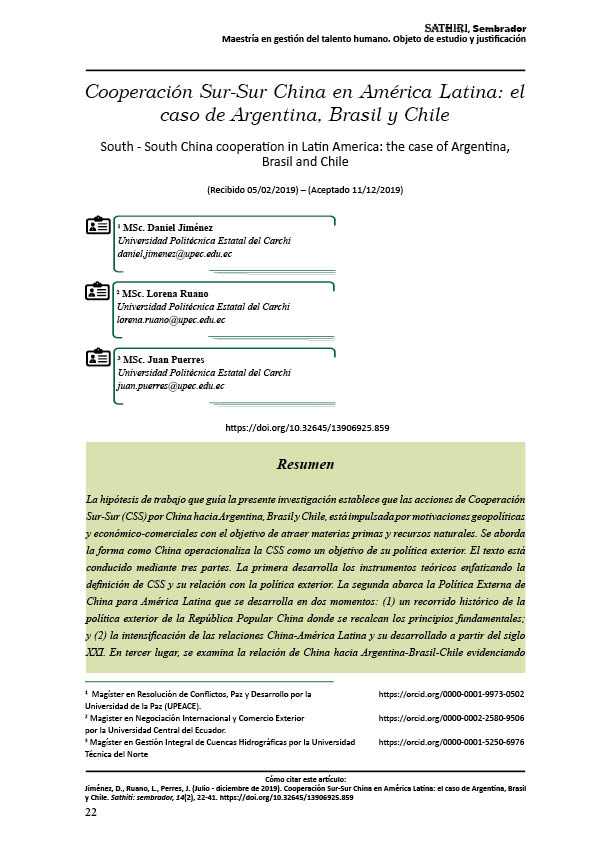South - South China cooperation in Latin America: the case of Argentina, Brasil and Chile
DOI:
https://doi.org/10.32645/13906925.859Keywords:
Political Affairs, South-South Cooperation, China, Brasil, Argentina, ChileAbstract
The working hypothesis that guides this research establishes that South-South Cooperation (CSS) actions by China towards Argentina, Brazil and Chile, is driven by geopolitical and economiccommercial motivations with the aim of attracting raw materials and natural resources. The way China implements SSC as an objective of its foreign policy is addressed. The text is conducted in three parts. The first develops the theoretical instruments emphasizing the definition of CSS and its relationship with foreign policy. The second covers the External Policy of China for Latin America that is developed in two moments: (1) a historical journey of the foreign policy of the People"™s Republic of China where the fundamental principles are emphasized; and (2) the intensification of China-Latin America relations and its development since the 21st century. Third, the relationship between China and Argentina-Brazil-Chile is examined, evidencing the various areas where SSC is developed. Finally, it can be stated that the presence of China in Latin America has consolidated a reprimarization in the exports of Argentina, Brazil and Chile, which shows an underdevelopment at a structural level.

Downloads
Published
Issue
Section
License
Copyright (c) 2019 Daniel Jiménez, Lorena Ruano, Juan Puerres

This work is licensed under a Creative Commons Attribution-NonCommercial-NoDerivatives 4.0 International License.
El autor mantiene los derechos morales e intelectuales de su obra, autorizando a la editorial de la revista Sathiri la difusión y divulgación de su contenido con fines estrictamente académicos y de investigación, sin fines de lucro. Así mismo, se autoriza que la obra sea descargada y compartida con otras personas, siempre y cuando no sea alterada y se reconozca su autoria.





















